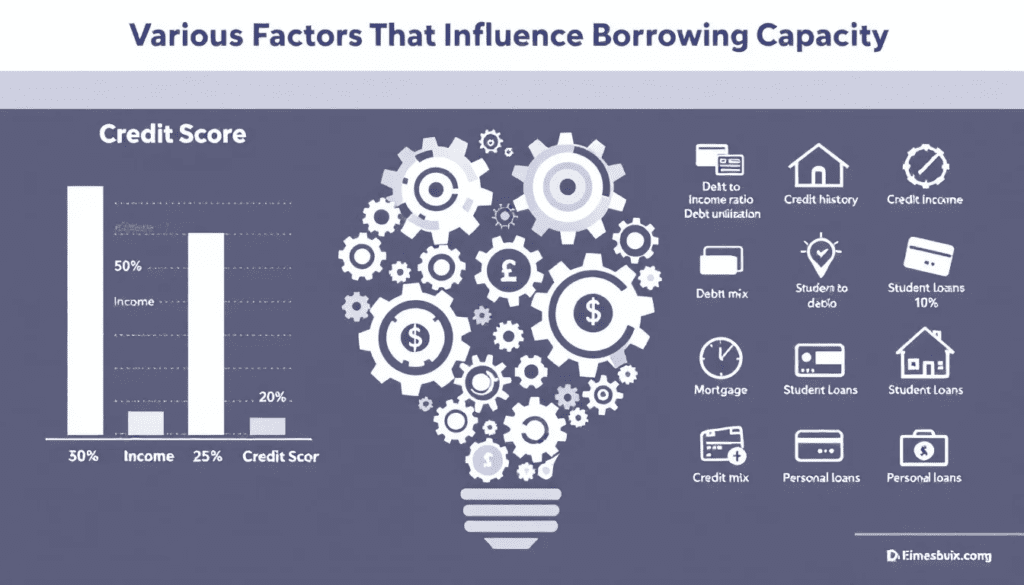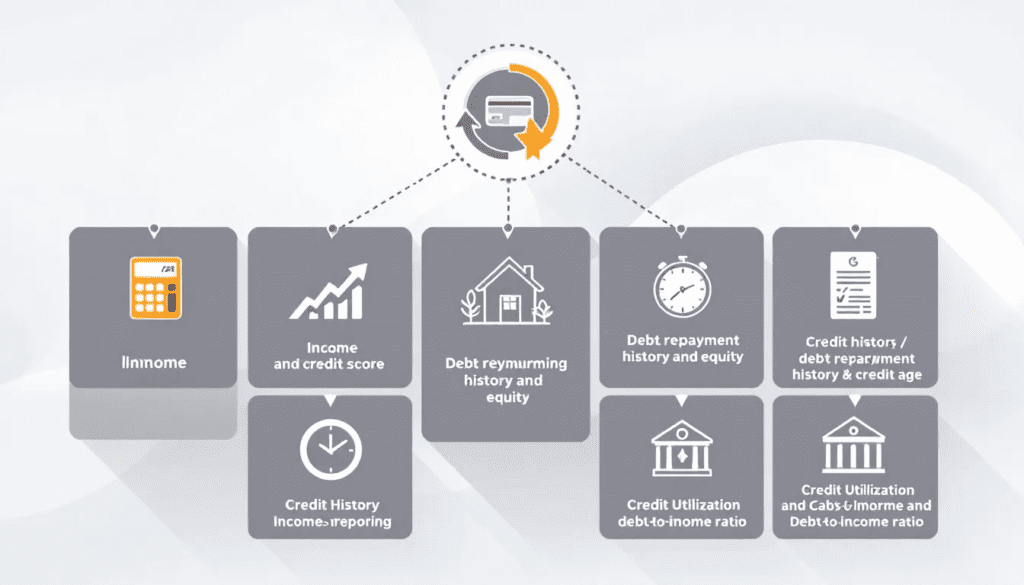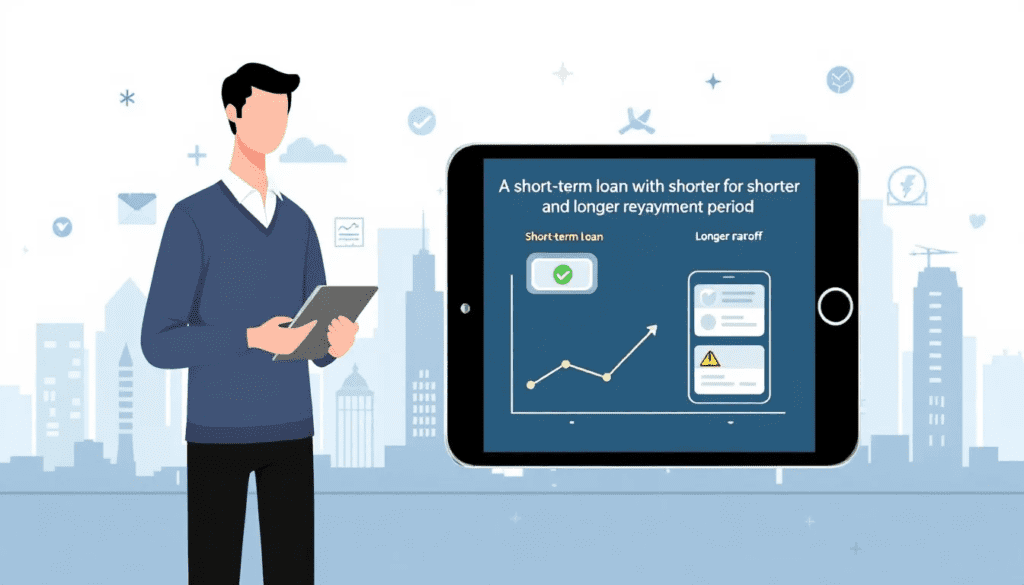Discover how the Reserve Bank of Australia's (RBA) decision to...
Read More
Are you looking to understand your borrowing capacity for a home loan? This article will guide you on how much you can borrow and what factors affect it. Learn practical tips to boost your borrowing power and secure an optimal home loan.
Borrowing capacity is determined by factors such as income, expenses, existing debts, credit score, and loan-to-value ratio, which lenders assess to establish the amount eligible for a home loan.
Improving your credit score and managing debts, along with increasing income and reducing expenses, can significantly enhance your borrowing capacity and financial standing.
Consulting a mortgage broker can streamline the loan process, as they provide access to various loan options and help assess an individual’s financial profile to find suitable lending solutions.

Borrowing power, also known as borrowing capacity, is the amount of money a lender is willing to loan you based on your financial situation. It’s essentially a measure of how much you can borrow to purchase a property. Lenders calculate this by evaluating various factors, including your income, expenses, debts, and the perceived risk you pose as a borrower.
To assess borrowing capacity, most lenders look at your gross income before tax and consider your regular living costs, such as rent and utilities. They also take into account existing debts, including credit cards and personal loans. A higher credit score can enhance your borrowing power, while a low score may restrict it. Additionally, lenders evaluate the loan-to-value ratio (LVR); a lower ratio indicates reduced risk and can improve your borrowing capacity.
Experts recommend borrowing within your means to avoid financial strain. Regular savings and financial discipline are qualities lenders look for, as they indicate a responsible approach to managing finances. Understanding these fundamentals positions you to maximize your borrowing capacity and secure an optimal home loan.

A borrowing power calculator is a valuable tool that estimates how much you can borrow based on your provided financial details. Inputting accurate details about your income, expenses, debts, and other financial data is essential for effective use. The calculator then uses this information to give you an estimate of your borrowing capacity.
Keep in mind that the estimates provided by a borrowing power calculator are for guidance only and do not constitute final loan approvals. The calculator incorporates an interest rate buffer to account for potential rate hikes and may use household expenditure measures if your input expenses are lower than expected.
Understanding your estimated borrowing power can help you set realistic expectations when shopping for a home loan.

Several factors influence your borrowing capacity for a home loan. Lenders consider your income, including any alternative sources like rental income or government benefits. Your debts and daily living expenses are also crucial components of this calculation. The fewer debts you have, the more you can borrow.
Your credit history, including missed payments and overall debt levels, significantly impacts your ability to borrow. Lenders want to see a clean credit history with no missed payments or defaults. Additionally, the number of dependents you support financially is factored into the assessment of your borrowing power. More dependents mean higher living expenses, which can reduce your borrowing capacity.
Building a savings buffer can demonstrate financial responsibility and improve your creditworthiness. Understanding these factors allows you to enhance your borrowing capacity and secure a better home loan.
A higher credit score makes lenders more likely to perceive you as a reliable borrower who will repay debts on time. To improve your credit score, start by making timely payments on all your bills and loans. Setting up direct debits can help ensure you never miss a payment deadline. Paying more than the minimum required on loans and credit cards can also significantly reduce overall interest charges, helping boost your credit rating.
Another effective strategy is to reduce your credit limits or cancel unused credit accounts. Regularly checking your credit report for errors or fraudulent activity can help maintain a favorable credit score. Taking these proactive steps improves your credit score and increases your borrowing capacity.
Boosting your income is one of the most direct ways to enhance your borrowing capacity for a home loan. Negotiating for a salary increase can significantly improve your earnings. If a pay rise isn’t possible, consider taking on additional part-time work or extra hours.
Utilizing tax optimization strategies can also enhance your cash flow, making more resources available for borrowing. Increasing your income not only enhances your financial situation but also makes you a more attractive borrower to lenders.
Cutting unnecessary expenses can significantly enhance your borrowing power. Start by creating a budget to manage your expenses and ensure they do not exceed your income. Canceling unused subscriptions and eating at home rather than dining out are practical ways to cut costs.
Implementing energy-saving strategies, such as adjusting thermostat settings, can lower utility bills. Monitoring your spending patterns and using cash for purchases can help control spending and adhere to your budget. Reducing your expenses increases your borrowing capacity and improves your overall financial health.
Lowering your total debts can significantly enhance your borrowing ability, as lenders consider your debt-to-income ratio when making assessments. Paying off existing debts or refinancing to lower rates can effectively decrease your debt-to-income ratio, improving your overall financial standing.
Lenders may perceive higher credit card limits as potential liabilities, so reducing unused credit lines can positively impact borrowing assessments. Managing and lowering your credit card debt improves your borrowing capacity and increases your chances of securing a favorable credit limit home loan.

Saving for a larger deposit can significantly enhance your borrowing capacity. A larger deposit leads to an increased borrowing capacity. It also results in lower interest rates and smaller repayments. It also demonstrates to lenders your ability to service the loan.
Setting up automatic transfers to a savings account can simplify and enhance the saving process for a deposit. Additionally, investing in shares or managed funds can aid in growing your savings over time if you have a longer timeline for buying a home.
Effective saving increases your borrowing capacity and secures better loan terms.

The type of home loan and associated home loans interest rates play a crucial role in determining your borrowing capacity. A longer loan term can significantly reduce monthly payments, enhancing immediate affordability. However, extending the loan duration can lead to paying more interest overall, impacting total loan costs.
Comparing different loan terms can help borrowers understand the financial implications of their choices. Some lenders may offer loan terms up to 40 years, which can further influence borrowing capacity. Choosing the right loan term balances immediate affordability with long-term financial health.
Lenders Mortgage Insurance (LMI) is a type of insurance that helps buyers enter the market with less than a 20% deposit. LMI protects lenders from loss if a borrower defaults and the property sells for less than the owed amount. This insurance can assist buyers who have less than a 20% deposit, making it easier for them to secure a home loan.
The cost of LMI is generally passed on to the borrower as a fee, which can either be paid upfront at settlement or added to the loan amount. A deposit of 20% of the home’s price can help avoid lenders mortgage insurance.
Considering LMI helps you understand its benefits and costs, aiding in your decision-making process.
Engaging in tax optimization yearly is essential to ensure compliance and maximize financial efficiency. Seeking professional tax advice can help you understand how salary sacrifices, pre-tax deductions, additional super payments, or novated leases can impact your borrowing capacity.
Self-employed individuals should draft tax returns with a tax adviser to accurately represent their income for borrowing capacity assessment. Seeking appropriate professional advice enhances your financial situation and maximizes your borrowing power.
Mortgage brokers act as intermediaries, helping clients navigate various lender options and find loans that meet their specific needs. They are required to operate in the best interest of their clients, ensuring loan recommendations align with borrowers’ financial situations. Working with a mortgage broker can simplify the loan application process, as they handle paperwork and communication with lenders.
Brokers often have access to a wider range of loan products, potentially finding better rates and terms than those available directly from lenders. They can provide valuable insights into lending criteria and help assess an individual’s borrowing capacity based on their financial profile.
Consulting a mortgage broker helps you navigate the complex home loan market with ease and confidence.
Maximizing your borrowing capacity involves a multifaceted approach, from understanding the fundamental factors that influence borrowing power to implementing practical strategies like improving your credit score, increasing your income, and reducing your expenses. By taking proactive steps and seeking professional advice, you can enhance your financial situation and secure the best possible home loan.
Remember, the journey to owning your dream home is a marathon, not a sprint. By being diligent and informed, you can make the process smoother and more rewarding. Take control of your financial future and make informed decisions that will benefit you in the long run.
Your credit score significantly impacts your borrowing capacity, as a higher score enhances your credibility with lenders, resulting in better borrowing options. Conversely, a lower score can limit your access to loans and higher interest rates.
A borrowing power calculator estimates your potential borrowing capacity based on your financial information, offering valuable guidance. However, it is important to note that it does not guarantee final loan approval.
To improve your borrowing capacity, consider negotiating for a pay rise, seeking additional work, or implementing tax optimization strategies to enhance your cash flow. Each of these approaches can effectively increase your income.
To effectively reduce expenses, create a budget, cancel unused subscriptions, eat at home, and implement energy-saving strategies. These measures can significantly enhance your financial situation.
Yes, collaborating with a mortgage broker can streamline your mortgage search by providing access to numerous lenders and potentially securing better rates and terms for your loan.
Discover how the Reserve Bank of Australia's (RBA) decision to...
Read MoreConfused about how much deposit you need for your first...
Read MoreMastering Investing in Property with SMSF: Best Practices and Insights...
Read MoreVictoria’s 2025 land tax reforms are reshaping the property landscape—affecting...
Read More